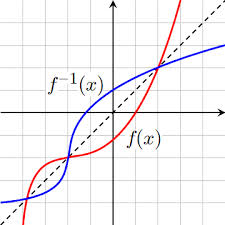inverse
英 ['ɪnvɜːs; ɪn'vɜːs]
美 [,ɪn'vɝs]
- n. 相反;倒转
- adj. 相反的;倒转的
- vt. 使倒转;使颠倒
TEM4 GRE 考 研
1、in- "in, on" + vers- + -e.
2、字面含义:turn inside out or turn outside in. => turn upside down.
3、该词来源于invert的拉丁语对应词的过去分词。由此取形容词词性并引申出如今的含义。
4、反正就是外面的转到里面去,对应的里面的自然就会被转到外面来了;这是转动一个东西的时候很自然的现象和规律。由此引申为:反转、颠倒、前后倒置。
5、由于该词取其形容词词性,其含义也引申出了一些新的含义:相反的;逆向的。
inverse 相反的,反向的来自invert,颠倒,倒置,-se,过去分词后缀。引申词义相反的,反向的。
- inverse (adj.)
- mid-15c., from Latin inversus, past participle of invertere (see invert). Related: Inversely. As a noun, 1680s, from the adjective.
- 1. Evil is the inverse of good.
- 恶是善的反面.
来自《现代汉英综合大词典》
- 2. There is no sign that you bothered to consider the inverse of your logic.
- 你根本就不想把你的逻辑反过来考虑。
来自柯林斯例句
- 3. The hologram can be flipped to show the inverse image.
- 全息图可以通过反转显现出逆像。
来自辞典例句
- 4. The tension grew in inverse proportion to the distance from their final destination.
- 拉力的大小与他们离终点的距离成反比。
来自辞典例句
- 5. The operation that is the inverse of differentiation is called integration.
- 与微分相反的运算叫做积分.
来自辞典例句
[ inverse 造句 ]
